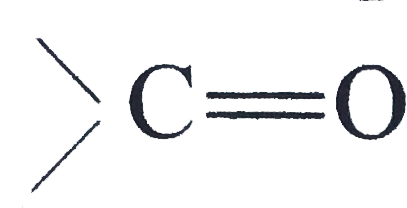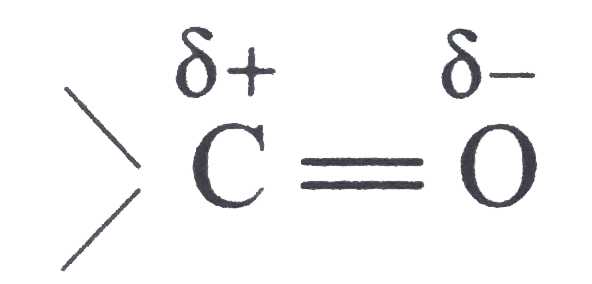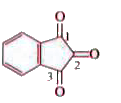(A) : Among the carbonyl compounds , formaldehyde is the most reactive towards addition.
(R) : Smaller the alkyl group bonded to carbonyl group , more is the reactivity .Solution in Telugu
Both A & R are true, R is the correct explanation of A
Both A & R are true, R is not correct explanation of A
A is true, R is false
A is false, R is true
The correct Answer is:A
Step by step video, text & image solution for (A) : Among the carbonyl compounds , formaldehyde is the most reactive towards addition. (R) : Smaller the alkyl group bonded to carbonyl group , more is the reactivity . by Chemistry experts to help you in doubts & scoring excellent marks in Class 12 exams.
Updated on:21/07/2023Similar Questions
Aldehydes and ketones ar specially susecptible to nucleophilic addition because carbonyl group is polar (due to electronegativity difference between carbon and oxygen) Positive charge on carbon makes it reactive towards the nucleophili. This addition is catalysed by acid. Reactivity of carbonyl compound towards nucleophilic addition increases with increases in the electron deficiency at carbonyl carbon. Thus, (-I.E.)groups increase while (+I.E.) groups decrease the reactivity of carbonyl compound. Select the least reactive carbonyl compound for nucleophilic addition :
View SolutionAldehydes and ketones ar specially susecptible to nucleophilic addition because carbonyl group
 is polar (due to electronegativity difference between carbon and oxygen)
is polar (due to electronegativity difference between carbon and oxygen)

Positive charge on carbon makes it reactive towards the nucleophili. This addition is catalysed by acid.
Reactivity of carbonyl compound towards nucleophilic addition increases with increases in the electron deficiency at carbonyl carbon. Thus, (-I.E.)groups increase while (+I.E.) groups decrease the reactivity of carbonyl compound.
Which among the following isomeric compounds is most reactive?
View SolutionWhich carbonyl group of the given compound in most reactive for nucleophilic addition reaction ?

View SolutionAldehydes and ketons are susceptible to nuclephlic addition because carbonylgroup

Polar (due to electronegativeity difference between carbon and oxygen
positive charge on carbonyl compound towards nucleophilic . this addition is catalysed by acid . REactivity of carbonyl compound towards nuclephilic addotion increase with increase in teh electron deficiency at carbonyl carbon Thus (-I.E ) groups increase while (+I.E ) groups decreases the reactivity of carbonyl compound .
which among the following is most reactive towards nuclephilic addition
View SolutionAldehydes and ketons are susceptible to nuclephlic addition because carbonylgroup

Polar (due to electronegativeity difference between carbon and oxygen
positive charge on carbonyl compound towards nucleophilic . this addition is catalysed by acid . REactivity of carbonyl compound towards nuclephilic addotion increase with increase in teh electron deficiency at carbonyl carbon Thus (-I.E ) groups increase while (+I.E ) groups decreases the reactivity of carbonyl compound .
which among the following isomeric compound is most reactive towards nucleophilic addition
View Solution(A) Among the carbonyl compounds, formaldehyde is the most reactive towards addition.
(R) Electrophilicity of carbonyl carbon in formaldehyde is maximum.
View SolutionAldehyde and ketones are specially susceptible susceptible to nucleophile addition because carbonyl group (due to electronegatvity different between carbon and oxygen). Positive charge on carbon makes it reactive towards the nucleophile. This addition is catalysed by acid. Reactivity of carbonyl compound towards nucleophilic addition increases in the electron deficience at carbonyl carbon. Thus, (-I.E.) group increase while (+I.E.) groups decrease the reactivity of carbonyl compound Which of the following is most reactve to give nucleophilic addition?
View Solution
